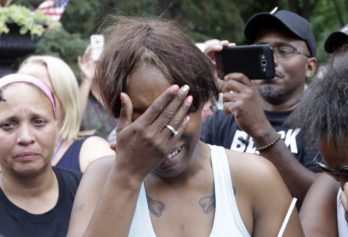
Victoria Phillips, an associate professor at Emory’s Rollins School of Public Health, writes that while approximately 96 Black men die each year in police homicides, about 95 Black men undergoing heart bypass die each year — after taking account of other factors affecting surgical survival.
“We seldom think of medicine and law enforcement as professions with parallels,” Phillips writes. “While many exist — both are predominantly white, male and fiercely loyal to their own — the most remarkable attribute they share is a unique brand of public trust that provides them license to cause harm: one with weapons, the other with scalpels … In spite of the numbers, the public focuses laser-like on the former and pays minimal attention to the latter.”
Phillips describes how the medical profession has used a complex process called risk adjustment to determine the patient-specific factors that are most likely to lead to death, such as insurance coverage, presence of other diseases, smoking status, weight, age and income. As a result of this process, fatalities connected to bypass surgery have been reduced by 33 percent over the past decade for white men. For Black men? The decline has been just 3 percent.
According to Phillips, the mortality rate from bypass surgery for Black men is 11 percent higher than that for white men of similar health status.
“Reporting is voluntary, and fewer than 5 percent of the nation’s 17,000 law enforcement agencies currently send information,” she writes. “No standard definition for justifiable exists, nor is there clear guidance on what party makes the justifiable determination. ‘Unjustifiable’ deaths aren’t even included. In our high-tech world, this state of affairs is inexcusable.”
“The goal for both professions should be twofold,” Phillips concludes. “The first is to minimize death counts. The second is to investigate existing and perceived racial disparities. These may be a function of racism, but are likely a far more complex phenomenon, a proposition that should be entertained equally in medicine and law enforcement.”


